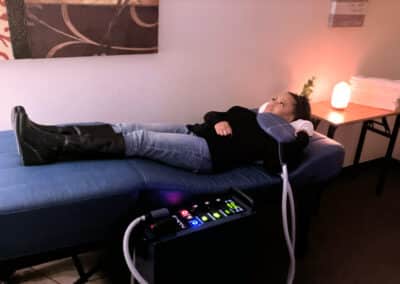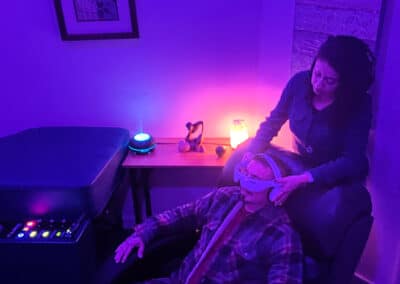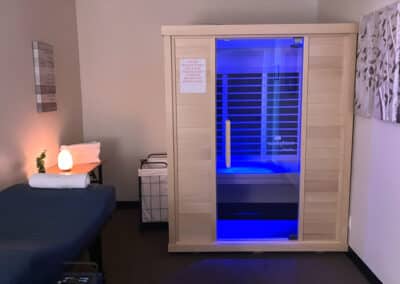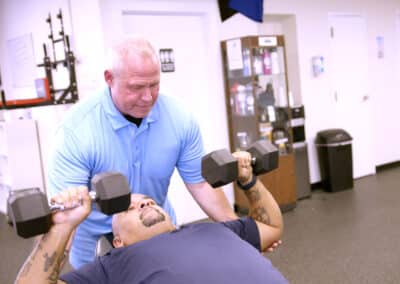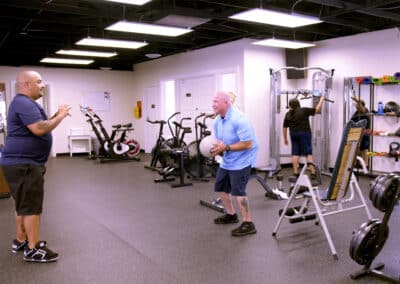
Recovery Wellness Center
Albuquerque
The Wellness Center at Turning Point Recovery Center
Our wellness center offers you the space to improve your quality of health and increase your success toward long-term recovery. We are pleased to provide extended services, by certified and licensed health and medical professionals, who work with you to develop recovery-focused wellness plans to achieve your health goals. Our wellness team aims to help improve your health, diet, nutrition, and fitness routines, while also enjoying safe spaces dedicated to quiet meditation, mindfulness, body restoration, and yoga practices.

Our Recovery Wellness Center
The goal of a sobriety wellness center is not only to help you overcome addiction but also to enhance your overall quality of life by fostering a sense of well-being, self-care, and personal growth. We emphasize creating a supportive, community-oriented environment where you can connect with others on a similar journey and receive ongoing support as you work towards sustained sobriety and a healthier, more fulfilling life.
The Wellness Center Provides:
- Pulsed Electromagnetic Field Therapy (PEMF)
- Relaxation Sauna
- Yoga
- Meditation Rooms
- Gym
- Group Meetings
- Medical Professionals
- Fitness Trainers
- Brain Tap
How Do I Get Access To The Wellness Center?
The process for getting access to a sober wellness center typically involves several key steps to ensure that you receive appropriate care and support. By following these steps, you can gain access to a sober wellness center and benefit from a holistic approach to recovery that supports your overall well-being and long-term sobriety.
1
Research and Inquiry
Start by researching various sober wellness centers to find one that fits your needs. This can include looking at their services, programs, and approach to recovery. Initial inquiries are often made via phone, email, or through their website.
2
Initial Assessment
Many wellness centers require an initial assessment to determine whether their services are suitable for you. This assessment may involve a conversation with a counselor or intake coordinator who will ask about your substance use history, current needs, and recovery goals.
3
Application and Admission
If the wellness center is a good fit, you may need to complete an application or intake form. This paperwork often includes personal information, medical history, and any relevant details about your recovery journey. The center will review this information to confirm eligibility and fit.


4
Financial and Insurance Arrangements
Discuss the costs associated with the program, including any insurance coverage or payment options. This ensures you understand the financial aspects and can arrange for payment if needed.
5
Orientation and Intake
Once accepted, you’ll typically go through an orientation process. This may include a tour of the facility, an introduction to the staff, and an overview of the center’s programs, rules, and expectations.
6
Personalized Plan
The wellness center will develop a personalized plan for you based on your needs and goals. This plan might include various therapies, wellness activities, and support services designed to address your specific challenges and promote your overall well-being.

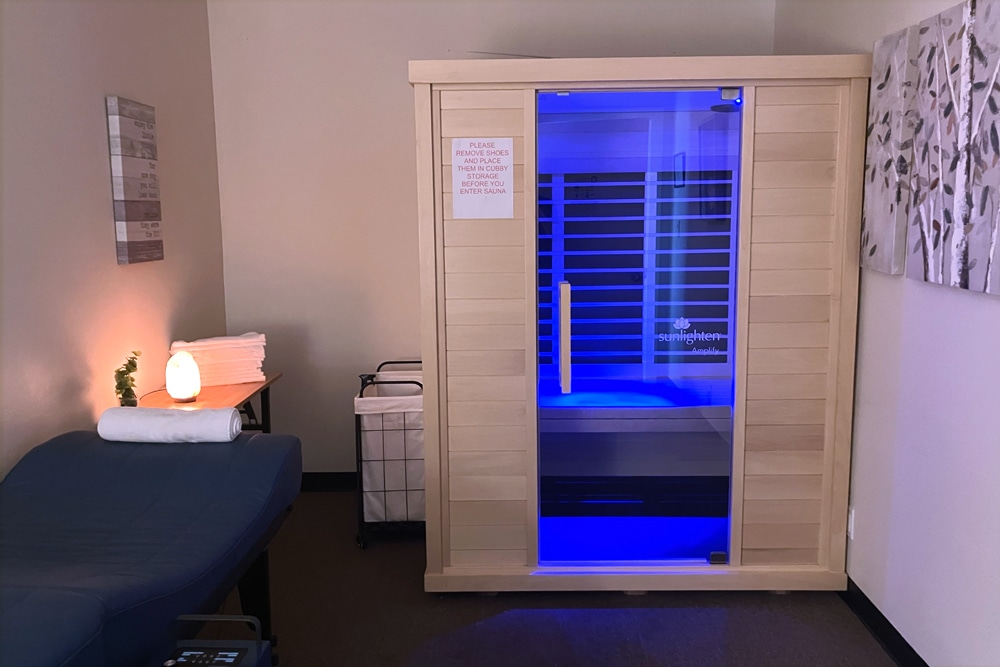
7
Participation in Programs
Begin participating in the center’s programs and services. This may include attending therapy sessions, engaging in wellness activities, and participating in group or individual counseling.
8
Ongoing Support and Evaluation
Throughout your time at the wellness center, you’ll receive ongoing support and regular evaluations to track your progress. Adjustments to your program or treatment plan may be made based on your needs and feedback.
Wellness Center Specialty Services

Pulsed Electromagnetic Field Therapy (PEMF)
Pulsed Electromagnetic Field (PEMF) Therapy uses low-frequency electromagnetic waves to stimulate cellular repair and improve circulation in your body. PEMF Therapy is used in treating substance use disorders by stimulating your brain’s natural production of neurotransmitters, such as dopamine and serotonin, which are often depleted by substance use. This can help to reduce withdrawal symptoms, alleviate cravings, and support mood regulation, making recovery more manageable. Additionally, PEMF can aid in stress reduction and promote relaxation, both of which are crucial in reducing relapse risk and supporting long-term recovery.
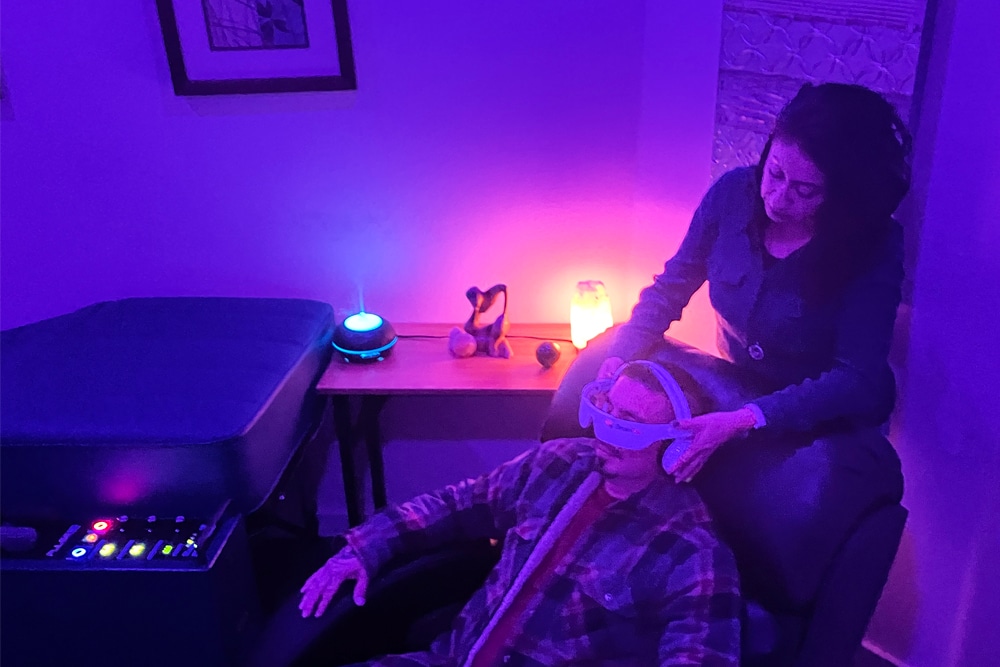
Brain Tap Therapy
Brain Tap Therapy is administered through a headset as a wearable device that combines light, sound, and guided meditation to promote relaxation, mental clarity, and stress reduction. For treating substance use disorders, BrainTap uses a combination of binaural beats, guided visualizations, and pulsing light therapy to stimulate brainwave activity associated with relaxation and focus, helping ease cravings and withdrawal symptoms. This therapy supports mental resilience and mood stability, which are essential for managing stress and reducing the likelihood of relapse during recovery.
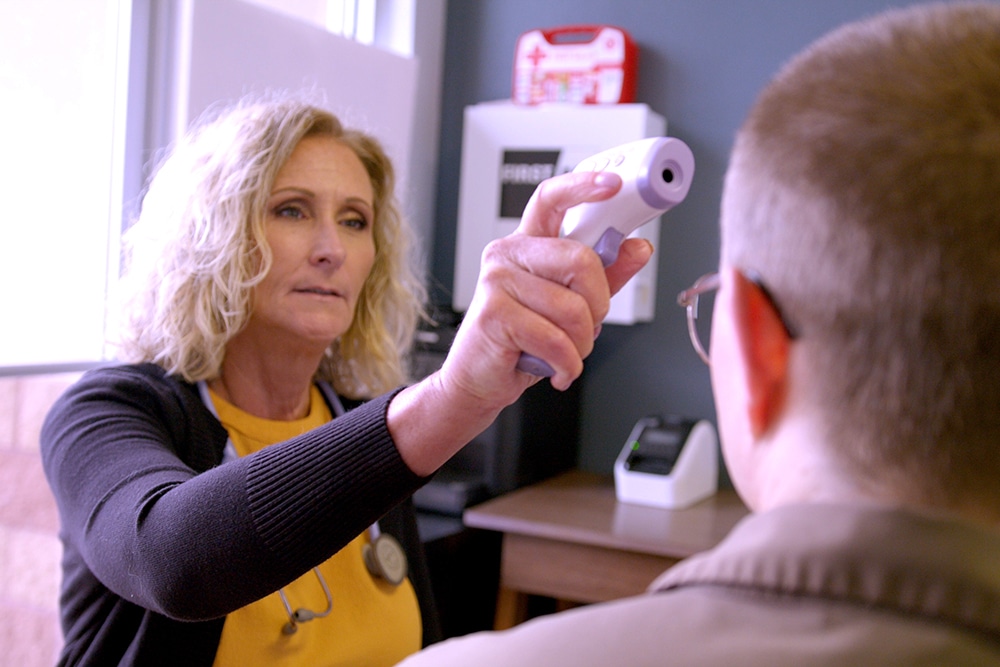
Medical Professionals
Our Medical professionals at Turning Point Recovery Center offer a range of services, including medical detox, counseling, medication management, and therapy to support you through each stage of recovery. They monitor your physical and mental health, manage withdrawal symptoms, and provide personalized treatment plans tailored to your needs. Through counseling and behavioral therapies, they help you develop coping strategies, address underlying issues related to addiction, and build a strong foundation for long-term recovery.

Relaxation Infrared Sauna
Our infrared sauna uses infrared light to heat the body directly, providing a gentle, deep heat that promotes relaxation, detoxification, and improved circulation. In substance use disorder treatment, infrared saunas are used to help detoxify the body by sweating out toxins accumulated from substance use, which can alleviate withdrawal symptoms. Additionally, the calming effects of infrared heat therapy may reduce stress and anxiety, supporting emotional well-being and reducing the likelihood of relapse during recovery.

Yoga
Our wellness center has a dedicated space for Yoga, a mind-body practice that combines physical postures, breath control, and meditation to improve physical, mental, and emotional well-being. In substance use disorder treatment, yoga helps manage stress, enhance self-awareness, and develop healthier coping mechanisms, which can reduce cravings and support emotional stability. Regular practice fosters relaxation, improves mood, and strengthens mental resilience, all of which aid in reducing the likelihood of relapse and promoting long-term recovery.

Gym
Our wellness gym is a fitness facility focused on holistic health, offering equipment, classes, and activities that support both physical and mental well-being. Our gym provides a constructive outlet for stress, helping individuals rebuild physical strength, increase energy levels, and improve mood through regular exercise. Physical activity in this setting can reduce cravings, elevate natural endorphins, and serve as a positive coping mechanism, all of which contribute to a stronger, more balanced recovery journey.
What Is A Wellness Center?
A wellness center for sobriety is a facility that offers a holistic approach to recovery from substance use disorders by focusing on the overall well-being of individuals in sobriety. These centers provide a range of services and programs designed to support physical, mental, and emotional health as part of the recovery process.
In a sobriety-focused wellness center, you may have access to various therapies, including counseling, group therapy, and individual therapy sessions, as well as alternative treatments like yoga, meditation, acupuncture, and fitness programs. Nutritional counseling, stress management techniques, and life skills training are often included to help you build a balanced, healthy lifestyle that supports long-term recovery.
CALL NOW
505-217-1717
We’re here to help.
We’ll help you get on the best path forward in your recovery journey.
Most insurance plans, including Medicaid, are accepted.




